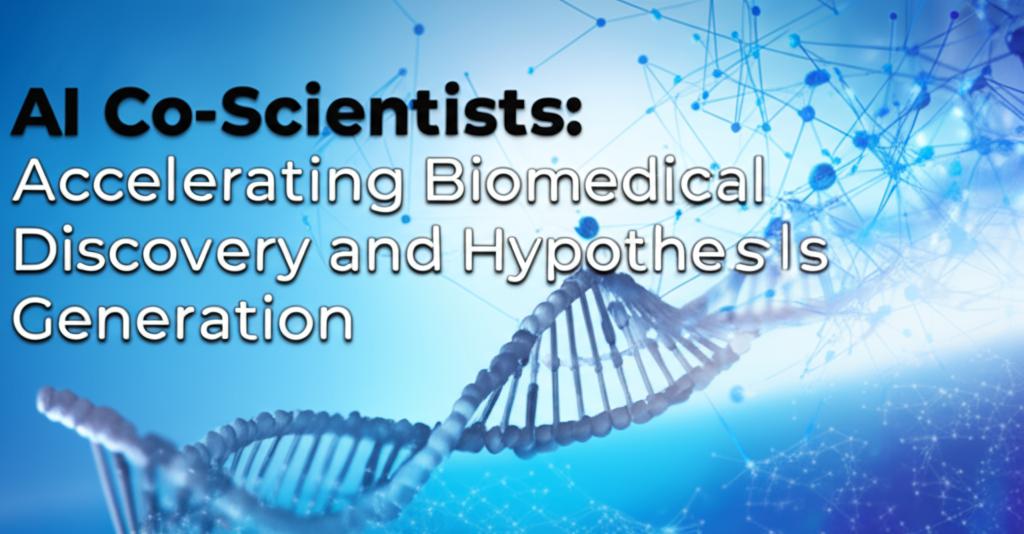The integration of Artificial Intelligence (AI) as a "co-scientist" is rapidly transforming biomedical discovery and the way researchers generate hypotheses. This technology offers the potential to accelerate the pace of research, uncover novel insights, and streamline the path from discovery to application.
Accelerating Discovery and Hypothesis GenerationAI, particularly through advanced platforms like Google's AI co-scientist built on Gemini 2.0, is designed to function as a virtual collaborator for scientists. These AI systems can assist in several key areas:
- Synthesizing Vast Amounts of Information: AI can process and analyze massive volumes of scientific literature, experimental data, and other relevant information far more efficiently than humans. This allows researchers to quickly gain comprehensive overviews and identify patterns that might otherwise be missed.
- Generating Novel Hypotheses: By identifying gaps in current knowledge and making connections across diverse datasets, AI co-scientists can propose new, testable hypotheses. This can significantly shorten the early research cycle, reducing the time for hypothesis generation from weeks or months to days in some cases. These AI-generated hypotheses are often rated highly for novelty by domain experts.
- Designing Experiments: AI tools can assist in designing experimental protocols and suggesting optimal conditions based on existing research. They can recommend specific assays, reagents, and statistical models for testing hypotheses.
- Analyzing Complex Datasets: Machine learning algorithms excel at identifying patterns and insights within large and complex datasets, such as genomic, proteomic, and clinical data. This is crucial for modern biomedical research.
Many AI co-scientist systems employ a multi-agent approach. This means that different AI agents with specialized functions work together, mirroring the scientific method. These agents might be responsible for:
- Generation: Creating initial hypotheses or ideas.
- Reflection and Evaluation: Critically assessing the generated hypotheses.
- Ranking: Prioritizing hypotheses based on factors like novelty and feasibility.
- Evolution: Iteratively refining hypotheses based on feedback and new information.
- Literature Review: Summarizing relevant existing research.
This iterative "generate, debate, and evolve" framework allows the system to continuously improve the quality and novelty of its outputs. Scientists can interact with these systems by providing initial research goals in natural language, offering seed ideas, and giving feedback on generated outputs.
Real-World Applications and ValidationsThe impact of AI co-scientists is already being demonstrated in various biomedical applications:
- Drug Repurposing: AI has successfully identified existing drugs that could be effective for new indications. For example, AI has proposed novel candidates for treating acute myeloid leukemia (AML), which were subsequently validated through lab experiments.
- Novel Target Discovery: AI can pinpoint new biological targets for therapies. In liver fibrosis research, AI proposed epigenetic targets that showed significant anti-fibrotic activity in human hepatic organoids.
- Understanding Disease Mechanisms: AI has helped to hypothesize and understand complex biological processes, such as identifying a new gene transfer mechanism linked to antimicrobial resistance. This insight was later independently verified by researchers.
- Predicting Molecular Interactions: Advanced AI models like AlphaFold 3 are extending their capabilities beyond protein folding to model interactions between proteins, DNA, RNA, and small molecules, significantly aiding in drug target identification and therapeutic design.
The implications of AI co-scientists extend beyond specific discoveries:
- Personalized Medicine: AI can help tailor treatments to individual patients based on their genetic makeup, lifestyle, and other factors.
- Democratizing Science: AI tools can make complex research capabilities more accessible to a broader range of scientists.
- Improving Clinical Trials: AI can assist in optimizing clinical trial design, patient recruitment, and predicting trial outcomes.
- Accelerating Regulatory Review: AI has the potential to streamline the review of regulatory documentation.
While the potential is immense, it's important to acknowledge that AI co-scientists are tools to augment human ingenuity, not replace it. Expert oversight, human intuition, and experimental validation remain crucial components of the scientific process. The collaboration between humans and AI is key to driving the field forward.
The ongoing development and refinement of AI co-scientist systems, powered by increasingly sophisticated AI models, promise to further accelerate the pace of biomedical discovery, leading to new understandings of diseases and the development of novel therapies faster and more efficiently than ever before.

